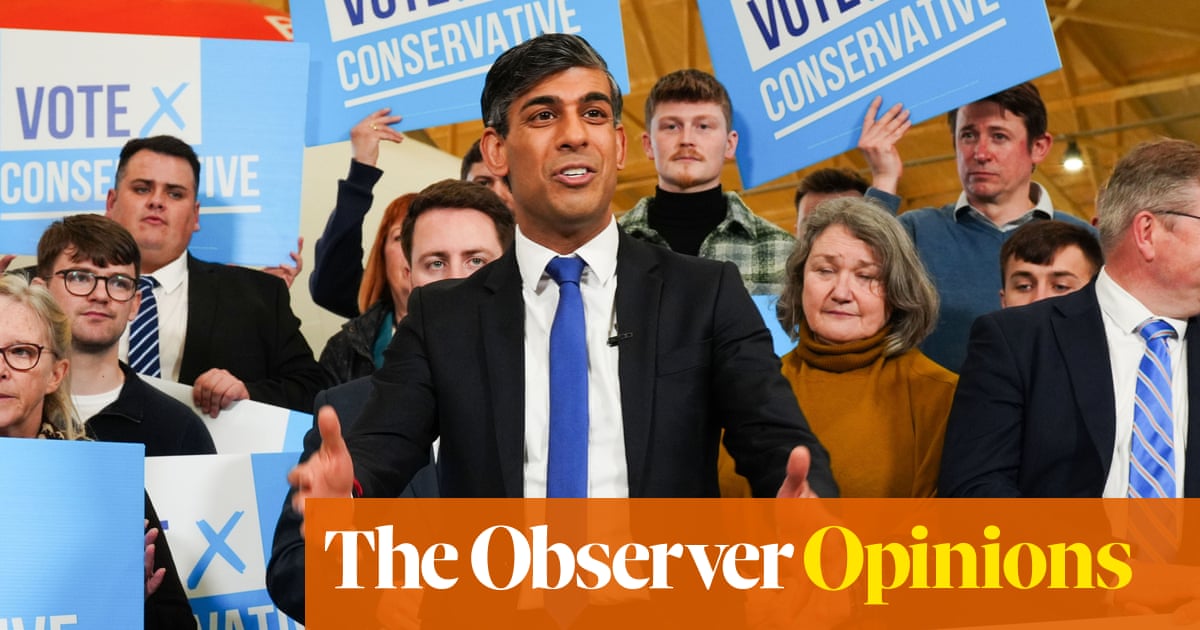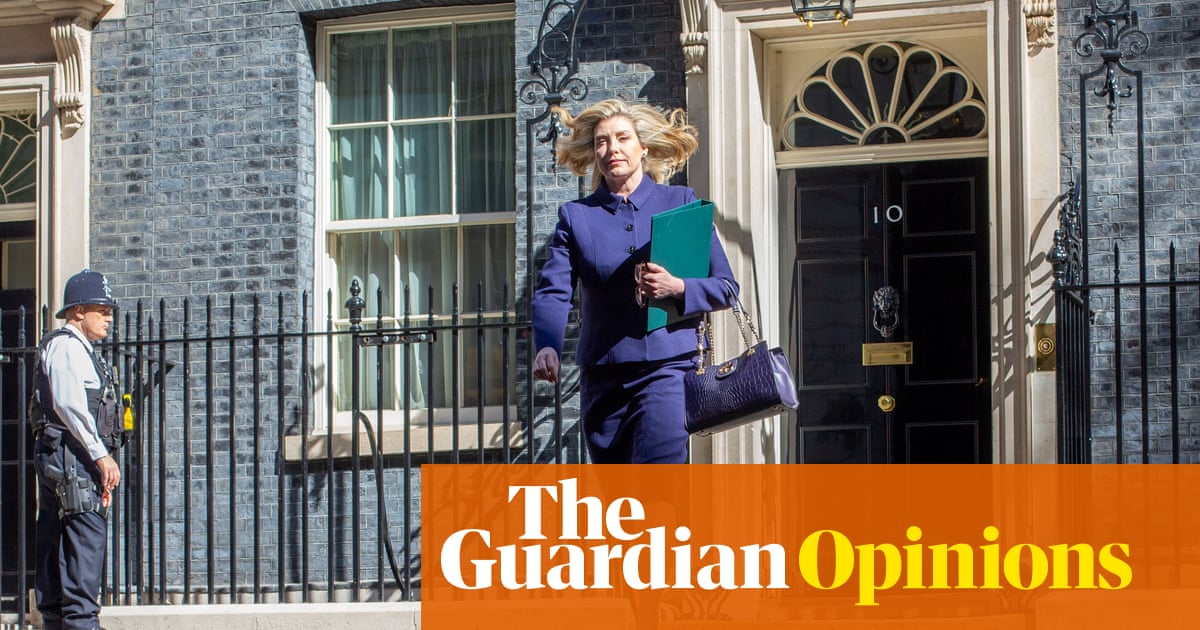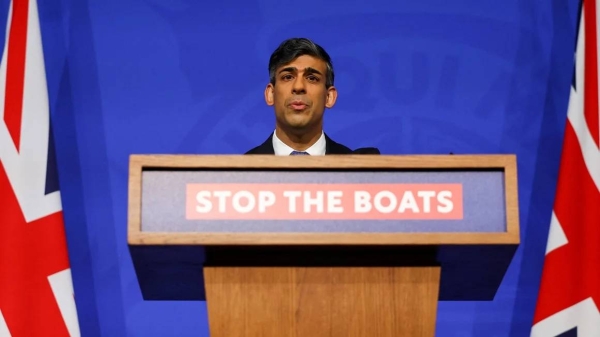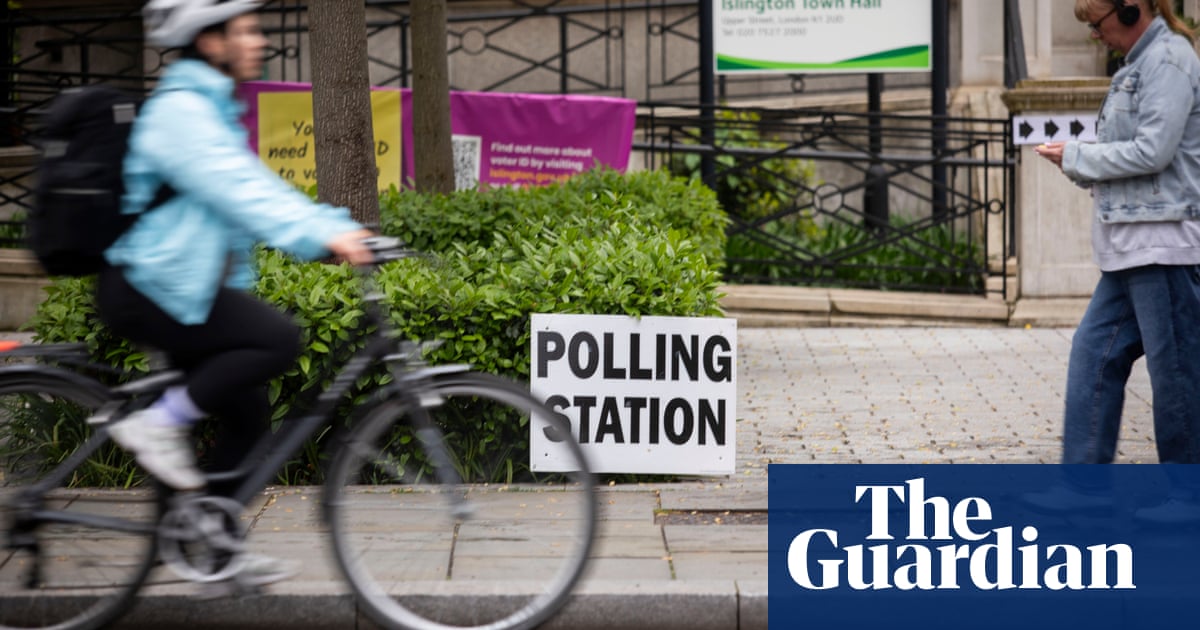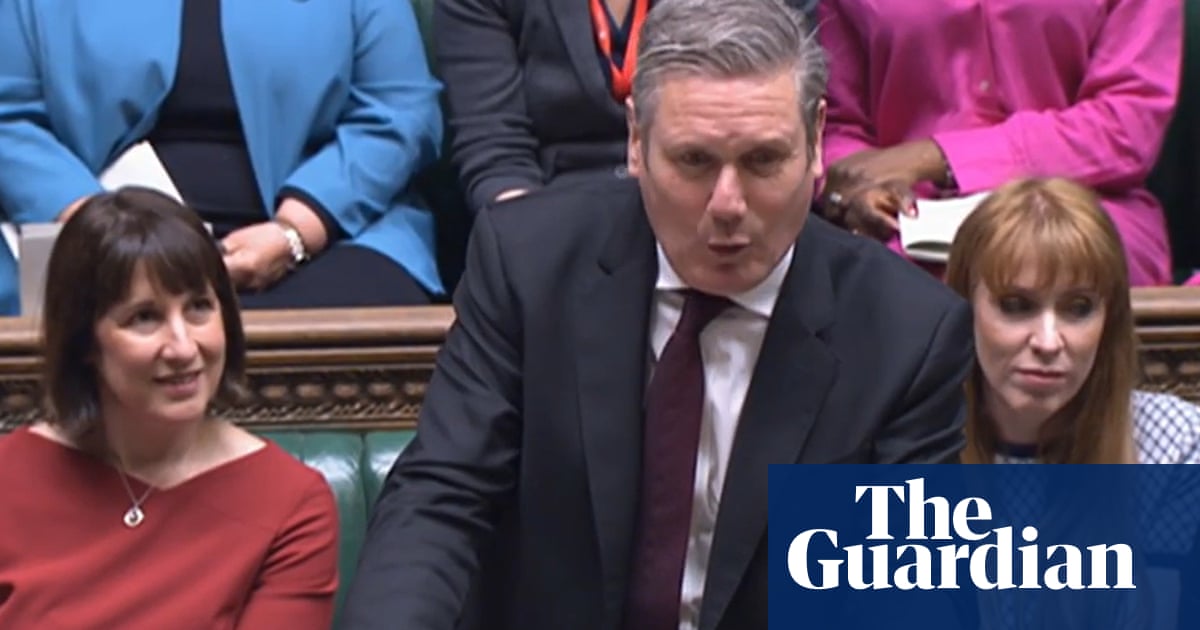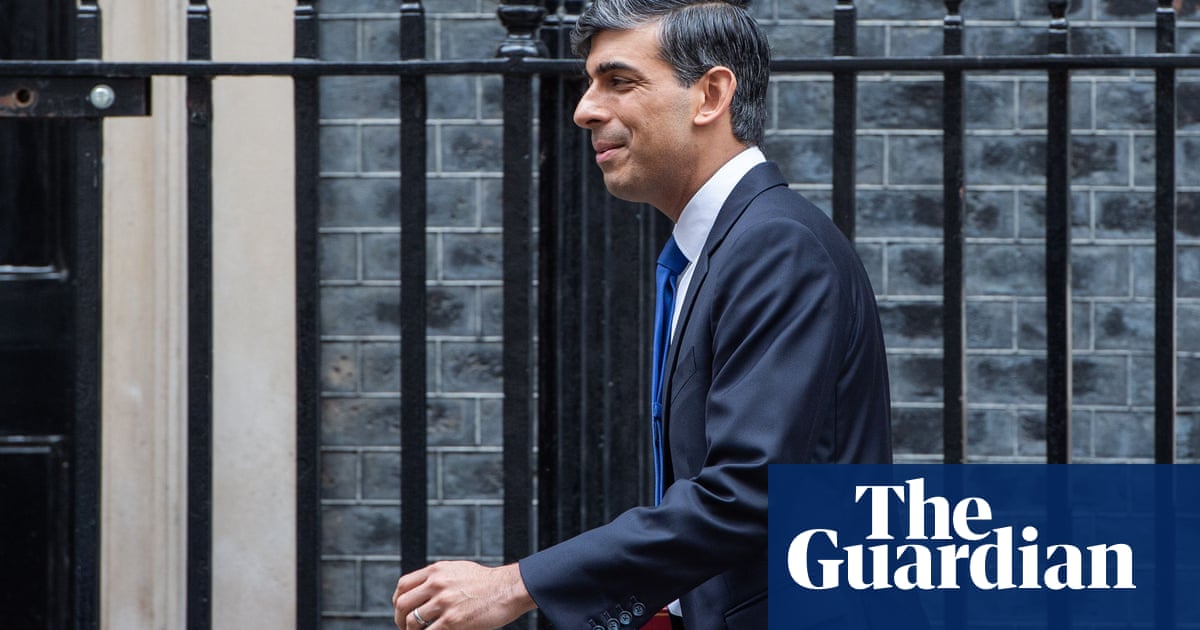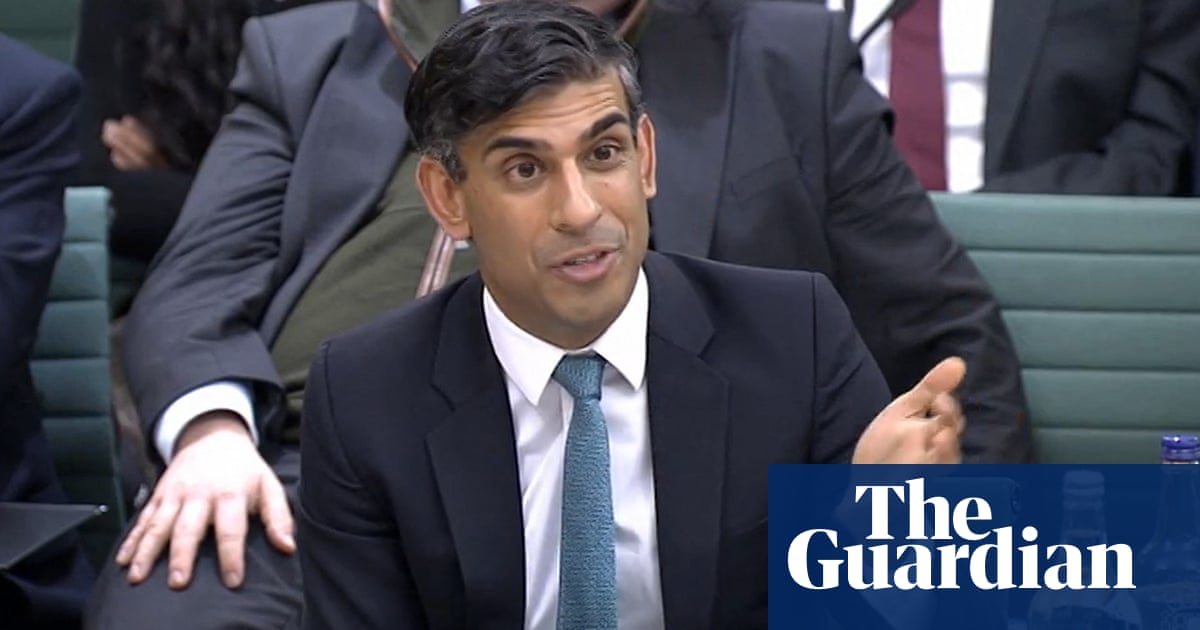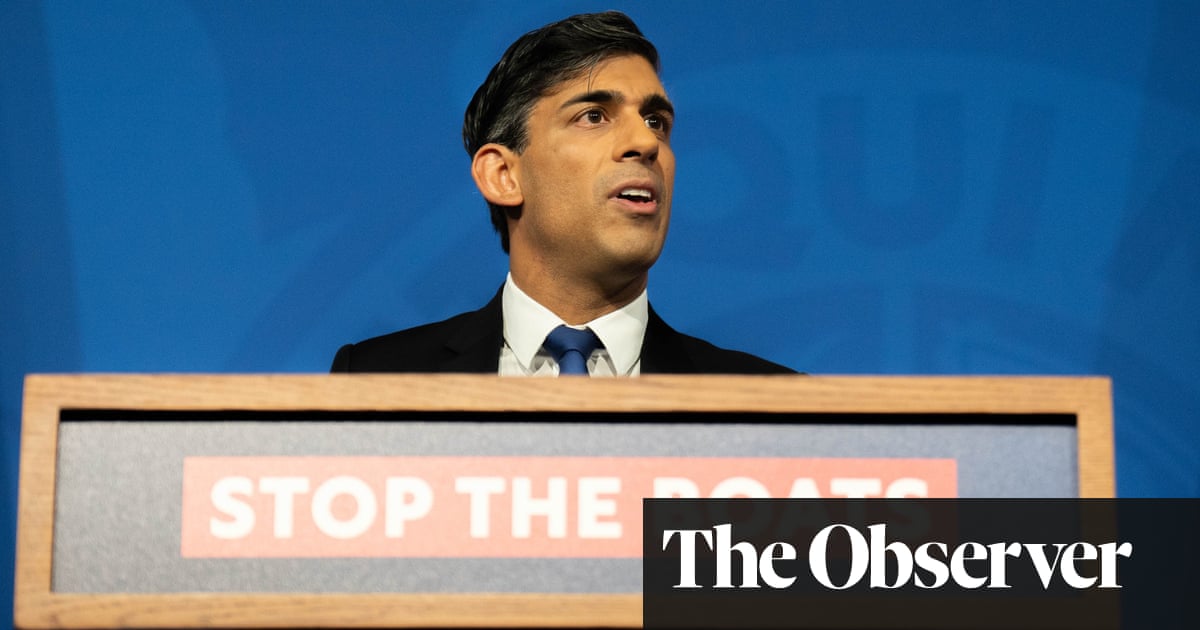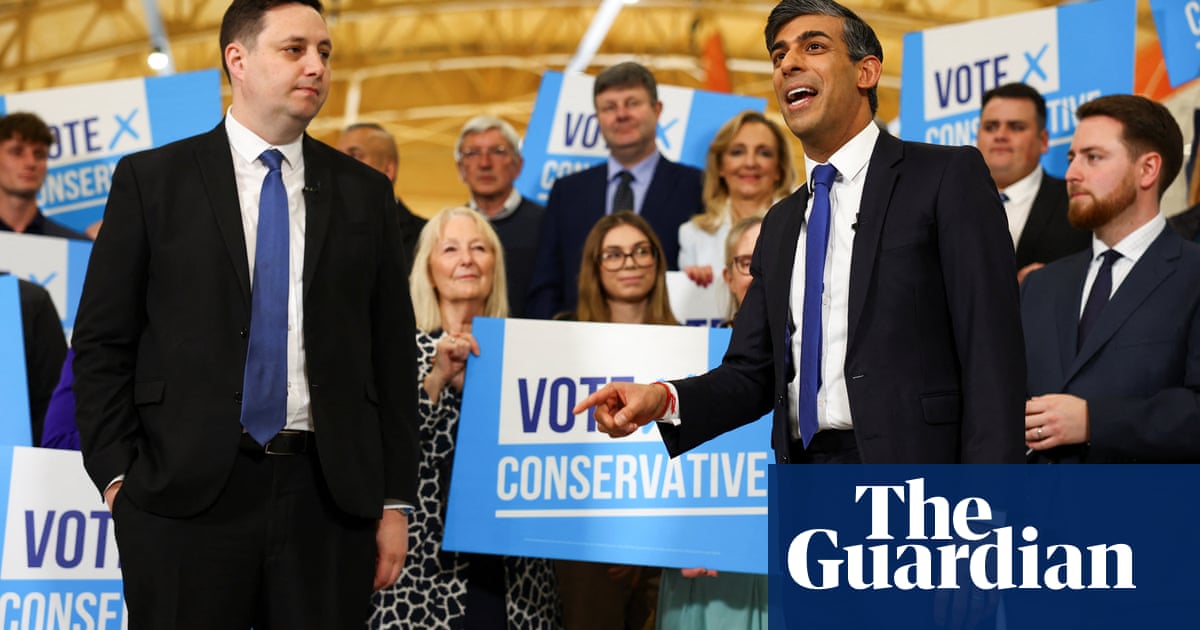
As the terrible council and mayoral results rolled in for the Conservatives on Friday night, was there any part of Rishi Sunak that regretted sealing Boris Johnson’s fate as prime minister by resigning as his chancellor less than two years ago?
This could have been Johnson’s defeat, hurtling towards a Labour landslide at a general election, with Sunak and his allies plotting how to replace him thereafter.
Instead, Sunak has almost 500 disappointed councillors, ousted Tory council leaders, panicking MPs and a scathing, sacked former cabinet minister, Suella Braverman, to contend with – on top of polls that suggest he is heading for certain defeat. Even his close ally Mark Harper could only muster an assurance that the general election was “not a foregone conclusion” for Labour.
Adding to Sunak’s woes, the Sunday papers contained talk of Johnson brooding on a political comeback from his moated mansion in Oxfordshire, and whispers that the former prime minister’s team has been talking to Nigel Farage about what happens next.
The one ray of light was Ben Houchen, a supporter of Johnson, holding on to the Tees Valley mayoralty with a reduced majority.
Sunak appeared alongside Houchen, who had “forgotten” his blue rosette, on Friday afternoon, but the re-elected mayor made it clear his success owed nothing to the Westminster government by making no mention of the prime minister in his victory speech.
Sunak’s allies are intent on staying the course in the face of calls from both the right to tack in their direction to see off Reform UK and Nigel Farage, and MPs who believe a wipeout would be best avoided by moving back towards the centre ground.
But Sunak’s plan, containing more of the same policies on getting flights to Rwanda off the ground and further tax cuts, seems at this point unlikely to make much difference either to voting intention or quelling his critics in the party.
Braverman’s wing argues that more hardline policies, such as capping migration and pledging to withdraw from the European convention on human rights, would help reduce the appeal of Reform UK, the party led by Richard Tice, with Farage hovering in the background.
Reform came within 150 votes of knocking the Tories into third place in Blackpool South, but failed to convert its poll share into more than two council seats. Nevertheless, the right has a case that, unlike its predecessor, Ukip, Reform is taking votes off the Tories rather than Labour.
The other side argues that the much greater threat comes from Labour and the Liberal Democrats, which are the principal opponents in all marginal seats the Tories are fighting, and that a swing to the centre makes more sense.
This was David Cameron’s tactic in 2015, remaining largely squatted on the centre ground with major policies on housing and tax while throwing red meat to the anti-EU voters with the promise of a referendum. When polling time came, Ukip performed well in some areas but failed to make sweeping gains and was widely seen as squeezed by the major parties.
There is little sense, however, that Sunak, an instinctive rightwinger on the economy and Brexit, has an appetite to move to the centre, and every sign that the coming election will feature more anti-migrant policies and the rhetoric of culture wars.
Writing in the Telegraph, Braverman called this weekend for Sunak to own the mess that the Tories are in, saying: “The hole to dig us out is the PM’s, and it’s time for him to start shovelling.” The problem for the Tories, and with Braverman’s mangled metaphor, is that Sunak appears to believe more of the same shovelling in the same direction is the right answer – digging himself and his party further into the hole, rather than attempting to climb out of it.




